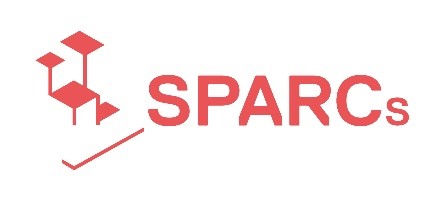Innovation Acceptance Unit
SPARCS project officially launches
The SPARCS project, a smart city initiative that brings together 31 partners* with the common goal of creating a network of Sustainable energy Positive & zero cARbon Communities, is officially kicking off on October 1st, 2019. Following the kick-off, the project partners will gather at a General Assembly in Espoo, Finland on October 11th, 2019.
The project will provide systematic support for urban transformation and community engagement in two Lighthouse Cities - Espoo (Finland) and Leipzig (Germany). The solutions developed in the Lighthouse Cities will be closely followed in five Fellow Cities: Maia (Portugal), Kifissia (Greece), Reykjavik (Iceland), Kladno (Czech Republic) and Lviv (Ukraine) with the aim of further replication.
SPARCS is set to trigger urban transformation while keeping a high quality of life for citizens in the 7 cities. The 5-year project will support the participating cities in developing a shared bold City Vision 2050, with a focus on digitalisation, sustainable energy, improved air quality, electro-mobility solutions, and a framework for performance monitoring of the developed solutions. A top priority will be to set up inclusive management and planning models as well as ecosystems and processes together with companies, city planning and technical departments, research organisations, and most importantly, work together with the citizens. In SPARCS, citizens are at the centre of the decision-making process and the project ensures that citizens are aware of all the activities.
“By enabling, informing and supporting efficient urban transformation in the Lighthouse Cities, we anticipate that the SPARCS project will have a major positive impact on driving forward the sustainable energy and zero carbon agenda, and generate targeted and effective solutions that can be replicated across and beyond Europe,” said Project Coordinator Francesco Reda.
The Fraunhofer IMW Contribution
Fraunhofer IMW supports the participating cities in the development of a guide with tools and procedures to foster social empowerment of citizens and relevant stakeholders for the development and implementation of SPARCS solutions. As a member of the Leipzig consortium, the institute accompanies the City of Leipzig during the implementation of energy transformation actions within the project. Moreover, Fraunhofer IMW provides a methodological framework to develop a City Vision 2050 for urban transformation and energy transition, piloting in Leipzig, and supporting other participating cities by presenting the lessons learned. We are looking forward to the cooperation in the Leipzig consortium.
*SPARCS consortium members
SPARCS brings together a wide expertise group to implement integrated solutions for energy positive building blocks and districts in the Lighthouse Cities while also initiating implementation of solutions in five Fellow Cities:
Teknologian Tutkimuskeskus VTT OY (Coordinator) |
Adven |
BABLE UG |
Camara Municipal da Maia |
Cenero Energy GMBH |
Ceske Vysoke Uceni Technicke V Praze |
Citycon OYJ |
CiviESCo |
ELIN VERD S. A |
Espoon Kaupunki |
Fraunhofer-Gesellschaft zur Förderung der angewandten Forschung e. V. |
Gopa Com |
Kone OYJ |
LCE Lvivavtodor |
Lviv City Council |
Municipality of Kifissia |
National Ecological Centre of Ukraine |
NEW - Centre for New Energy Technologies S. A |
Orkuveita Reykjavikur SF |
Plug-IT Finland OY |
Reykjavikurborg |
Seecon Ingenieure GMBH |
Siemens Osakeyhtiö |
Sociedade Portuguesa de Inovacao consultadoria empresarial e fomento da inovacao S. A |
Stadt Leipzig |
Stadtwerke Leipzig GmbH |
Statutarni Mesto Kladno |
Suite5 Data Intelligence Solutions Limited |
Suomen Rakennusinsinöörien Litto RIL RY |
University of Leipzig |
WSL Wohnen & Service Leipzig GMBH |
For more information:
Dr. Francesco REDA
Project coordinator, VTT
Francesco.Reda@vtt.fi
Veronika CERNA
Communications Leader, GOPA Com.
Veronika.Cerna@gopacom.eu
© European Union, 2019
This project has received funding from the European Union's Horizon 2020 research and innovation programme under grant agreement No. 864242.
Responsibility for the information and views set out in this press release lies entirely with the authors. Reproduction is authorised provided the source is acknowledged.
